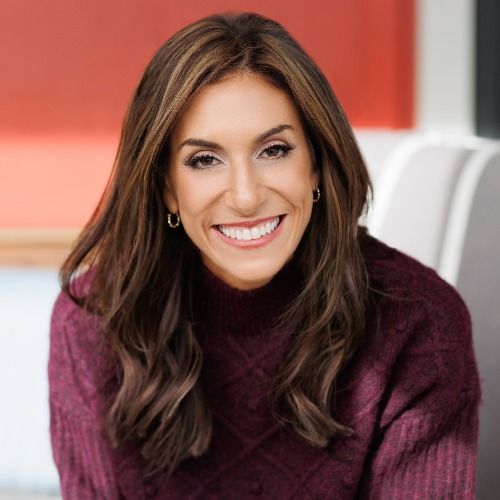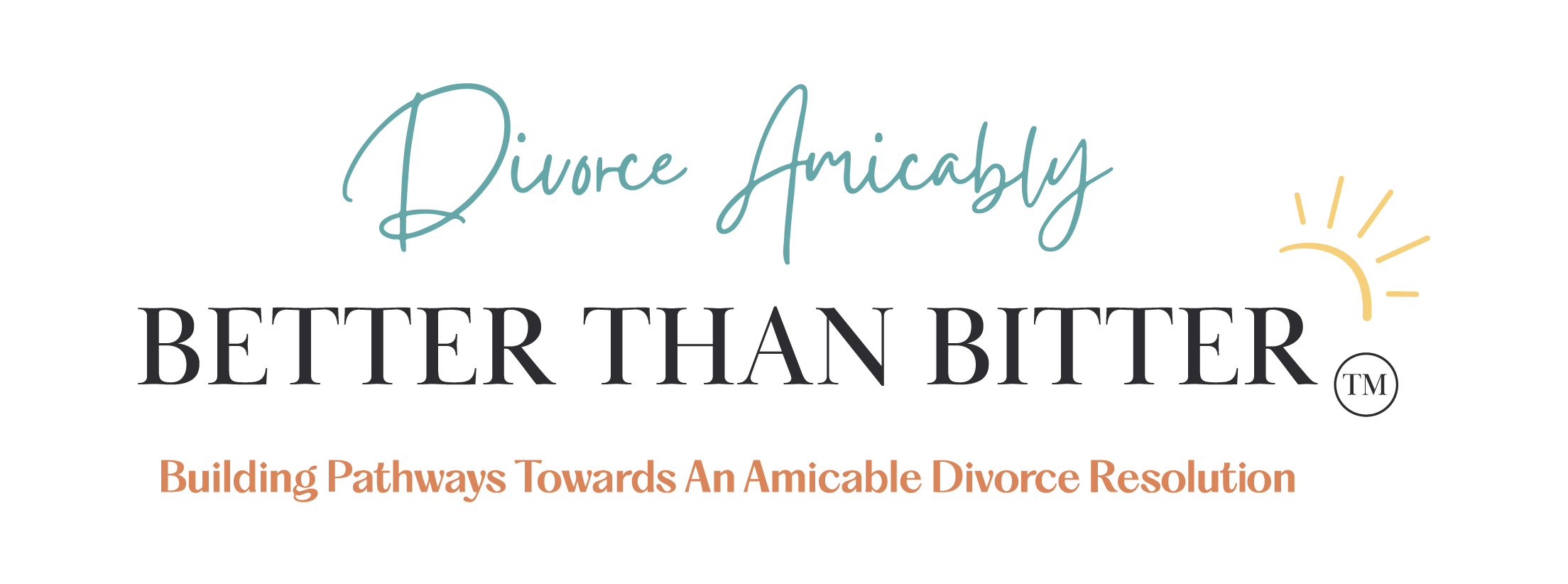Episode 52
Episode 52: Limited Beliefs. Are you Ruminating?
Episode 52: Limited Beliefs. Are you Ruminating?
Keywords
divorce, coaching, emotional healing, resilience, personal growth, limiting beliefs, gratitude, empowerment, relationships, self-discovery
Summary
In this episode of the Better Than Bitter Divorce Podcast, host Tania Leichliter discusses the journey of navigating divorce with a focus on empowerment, emotional healing, and personal growth. She emphasizes the importance of reclaiming one's power, challenging limiting beliefs, and adopting a perspective of gratitude. Through practical exercises and insights, listeners are encouraged to shift their narratives and embrace the opportunities that come with change, ultimately leading to a more amicable divorce resolution.
Takeaways
- Divorce can be approached amicably with the right mindset.
- Reclaiming power is essential for personal growth.
- Emotional impacts of divorce are often rooted in societal beliefs.
- Resilience is built by navigating challenges rather than avoiding them.
- Gratitude practices can shift focus from negativity to positivity.
- Children will be okay if they receive unconditional love.
- You have the power to control your reactions and emotions.
- Shifting blame to others gives them power over your feelings.
- Challenging limiting beliefs can reshape your future.
- Every ending is a new beginning, a chance to rewrite your story.
Titles
Navigating Divorce with Empowerment
Reclaiming Your Power Post-Divorce
Sound Bites
"We want to reclaim our power."
"Focus on what you can control."
"Look for the good in everyone."
Chapters
00:00 Understanding Limited Beliefs in Divorce
09:48 Reclaiming Power and Responsibility
14:15 Introduction to Amicable Divorce
15:44 Resources for Support and Growth
Transcript
Welcome to the Better Than Bitter Divorce Podcast, where we flip the script on divorce and show you how to have a more amicable divorce resolution. I'm your host, Tania Leichliter a divorce coach, a certified life coach, and the mastermind behind the Better Than Bitter five-step game plan course, where I help individuals build a pathway towards a more amicable divorce resolution.
Each week, I'll bring you uplifting stories from people who've successfully experienced amicable separations, proving that divorce doesn't have to be a battleground. Whether you're overwhelmed with grief, struggling with custody and co-parenting, or just dealing with a high-conflict individual, this podcast is here to guide you towards reclaiming your life and being what I know is possible, better than bitter.
Tania Leichliter AI (:Welcome to the Better Than Bitter Podcast, episode 52. Are you struggling with ruminating thoughts? I am a failure. I will be alone forever. I am not going to have enough money to put a roof over my head. My kids will never be the same. I must not be good enough or attractive anymore. If these are the thoughts that you are having, we call these limiting beliefs.
Today, that is what we are going to be talking about. This episode is the recording of a workshop that is in my On-Demand Resource Library. It is time to reclaim you.
Tania Leichliter (:many times feels like a complete loss of control. our identity is being rolled up in that endless loop of what ifs, what if I sell the house, or what if I
have to go get a job, and I'm not going to be around for the kids. But today, we want to shift that narrative, because divorce isn't the end of your story. It's really the moment, this new chapter, to take back your power. We talked a lot about the fact that when you blame other people for how you are feeling, you are giving up your power to that other individual.
So today I'm going to talk about releasing those limited beliefs that keep you stuck, whether it's guilt, whether it's self-doubt, whether it's fear, or whether it's overwhelm. I want you to move forward with clarity instead of that weight of regret. Because again,
Holding on to anything that happened in your divorce is just going to create suffering for you. So whatever you're holding on to, you are the one who is going to suffer. So we want to be able to reclaim our power. We want to be able to take ownership. We want to be able to take responsibility for our own future. And so we want to make sure that we're stopping this divorce from
allowing us to be our authentic selves, you know, or who we want to become. And we have that opportunity when we start this new chapter. So when we release these limited beliefs, we think about, okay, well, what were the emotional impacts of our divorce? Because so much of that feeling that we begin to have when we maybe somebody had an affair, or maybe they just asked
for a divorce, or maybe you were the one who initiated it. But it really does begin to stir up all of these different feelings, self-doubt, guilt, feelings of failure. And a lot of it's rooted in just past experiences as well as societal beliefs. I know that I had a conversation with an old friend of mine, and he went through a divorce, and his parents were very happily married. And he just believed
That's because he didn't have that till death do us part marriage, that he was a failure. And he held on to that belief that he had failed for years and years post-divorce. And the only person who was suffering with that particular belief that he had about himself was him. Right? So again, nobody is
believing that you have failed. That's something that you have decided to think for yourself. Because 50 % of people who get married get divorced. And so we need to flip the switch on what that meaning is to us and believe that we're not a failure. So we evolved. We evolved into two separate people. You can't control other people. And maybe somebody had an extramarital affair. But that doesn't mean you failed. That just meant that they had other needs.
that they were seeking because maybe they didn't feel good about themselves, and they needed additional validation. So it might be just what their needs are and not anything to do with you. So I always loved Tara Brach, and if you haven't done any work with her mindfulness exercises, she's really great. And she gives this amazing visual. She says that when you're faced with fear, think of it like the waves that are
crashing down over you. So think about and visualize being out in the ocean, and the waves keep crashing. So you can decide to just sit there and allow those waves to continue to crash down on you, to feel like you're about to drown. Or you can decide that you are going to ride those waves.
move with the currents, move with the breaks, and as you are riding those waves and moving through the ocean that it's like pushing this big red button to say, okay, it's time to grow.
learning how to build that resilience, learning to navigate what's in front of you versus just sitting there floating with that surfboard and letting all those waves crash down on you. Because when we do build resilience, that is when we grow the most in our lives. So this perspective is just so crucial in terms of getting unstuck, in terms of your limited beliefs, and being able to re-script it.
to be able to say, okay, this is just an opportunity to shed my old narratives. Cause guess what? They don't serve me anymore. And that's the question. Every time I say to my clients, Okay, let's do a thought download. Let's do a belief download. Where is our head today? And then going back and reading through those and then asking yourself, how is that thought serving me today? What feeling is it producing?
When I feel that way, how am I acting, reacting, behaving, or what am I not doing? That's going to potentially bring about the results that I want in my life. And sometimes you can start with that result. What do I want in my life? What do I want my life to feel like? What do I envision my outcome being? And then you work backwards. Okay, well, how do I need to show up for myself? How do I need to show up?
to act, react, and behave to get that result? Then how do I need to feel to get that action, reaction, and behavior moving in that direction? If I need to feel that way, well, what do my beliefs have to be? What do those thoughts have to be in order for me to feel that way? So you can't control life circumstances. Those facts are just gonna be there. But the rest of that thought framework is up to you.
So these are common limiting beliefs that we have in divorce. I wasn't enough for my partner, which means I won't be enough for anyone else. Or two, I failed as a spouse, and that failure is now defining me. Divorce means I'm always gonna be alone. I'm not worthy, or I am not lovable. My family, my friends will judge me because my marriage didn't last.
There are a lot of people who have a lot of shame around being able to communicate that they're getting divorced because they believe that their friends and their family are gonna judge them. I wasted years of my life, and now I have to start over with nothing. You can't wake up thinking that every morning. You have a lot of things to be grateful for. So that's one of the practices that I strongly recommend.
waking up in the morning, you dump your thoughts, and then you put down the gratitude. What are all the amazing things that I have in my life? Instead of focusing on what you do not have. I'll never be able to trust or love again. That's up to you. But again, being able to open up your heart and be vulnerable in life is going to give you pleasure, versus
always putting up that wall and not allowing anybody to get close to you again because you're afraid of getting hurt. My children are never going to be okay because of this divorce. They will be okay if they have your love and support. And if you give them that unconditional love, if you empathize, if you validate their feelings, you can't control how your soon-to-be ex or your spouse is going to treat your children.
But you can control how you treat your children and how much you tell them, how much you love them, and how much you care for them, and that you're there to support them in whatever is coming their way. It is just a new chapter. I always get that reference, and to individuals who grew up reading those books, where you were able to get to a certain point.
And it was, and they'd give you two different decisions. You can turn to page 20 if you want this, and you could pay, turn to page 60 if you want that. Well, just think of that as where you are right now in your divorce. This is a detour. It is just a detour and you have, and there's been a roadblock and now you got to go in a different direction. And is your choice on what you do with that new road in front of you. So why does all this matter?
So it matters because you want to be able to focus on what you can do versus what you have been thinking about for the past, because you can't get stuck in the past. Okay. It just reinforces that pain. It reinforces that resentment. You can't control it, and you can't go back. When you blame others for how you feel, you're only giving them all the power over your emotions. So shifting that responsibility to what you can control.
based on what you can do every single day, how you're waking up, and giving gratitude for the good. I tell everyone my theme song through my divorce was look for the good in everyone. And I really spent my entire focus on what was going to be best for my kids. And how can I focus on the good things in my soon-to-be X instead of all of the things that I
didn't agree with it, and I didn't like and I was so angry and so triggered. And if I could just focus on, but you know what? There is some good in him. And to be honest, the more I focused on the good, the less emotional I got and the more I was able to step into that legal process in a way that was really focused as a business negotiation. And I wasn't being as emotionally triggered
We're 50-50, 50 % positive, 50 % negative. That's just a fact. Like we have these two types of things coming out of us every day, but we have a choice on what we want to focus on. So when you take responsibility, you let that blame go, and you will be able to reshape your future. This is an exercise that everybody can do.
You write down your limiting belief. Again, these are your thoughts. This is your thought download. And then you challenge it. You want to say, is this absolutely true? Is this a fact, or is this just my thought? And so challenge it and then ask yourself, well, why do I believe this? Why is this my belief? And then from there, what could I potentially believe? So you re-script it in a way that potentially is going to bring about a different feeling.
So I want you to fill that out. You want to think about the thought download. What is the limiting belief? Then you're going to challenge it. You're going to say, Is this absolutely true? And if it's not absolutely true and it's just your thought, you're going to ask yourself, well, why am I thinking this? And how else could I be thinking? So recognizing these challenges is going to be very instrumental in your being able to coach yourself.
towards that brighter future.
Tania Leichliter AI (:Thank you for tuning into today's episode about limited beliefs at Better Than Bitter. We are here to support you in your divorce journey and beyond. If you are struggling with these limited beliefs discussed today, come join our Better Than Bitter support groups. We run four support groups each week.
And with our support group membership plus program, you can jump into as many weekly sessions as you need. In addition, you get unlimited access to our Better Than Bitter resource on demand library, premium articles, webinars, workshops, and Go to betterthanbitter.coach.
To register for a free support group trial today. If you enjoyed this podcast, subscribe today and get new episodes delivered to you each week. Remember, you cannot control other people, but you can control how you react to them. It is time to reclaim control, rediscover yourself, and start that new chapter. You've got this.
Tania Leichliter (:Thanks for tuning in to Better Than Bitter, navigating an amicable divorce. Whether you are at the beginning of your divorce journey, midway through, or even done, we want the stories from our guests to give you hope that an amicable resolution is possible. If you'd like to dive deeper into today's episode, check out our show notes for a full transcript, reflections, and links to learn more about Better Than Bitter's coaching courses,
and how to connect with our fabulous guests. If you're ready for more support, you can head over to betterthanbitter.coach. Daily, you'll find details and additional information on our five-step game plan multimedia course, our one-to-one Zoom coaching, group coaching, monthly memberships, events and retreats, and a whole lot more. Plus, we've got a ton of free resources, like our monthly newsletter,
our private Facebook group, Instagram channel, and a library of articles and free webinars to help you along the way. When you go to our website, you'll be able to schedule a free 45-minute breakthrough call. Remember, we're here to help you reach an amicable resolution. Find your courage and believe in your brighter future because you know what? It is possible.
At Better Than Bitter, we measure success by what we give and not by what we get. So let's change the divorce dialogue together. It's time to be better than bitter.



